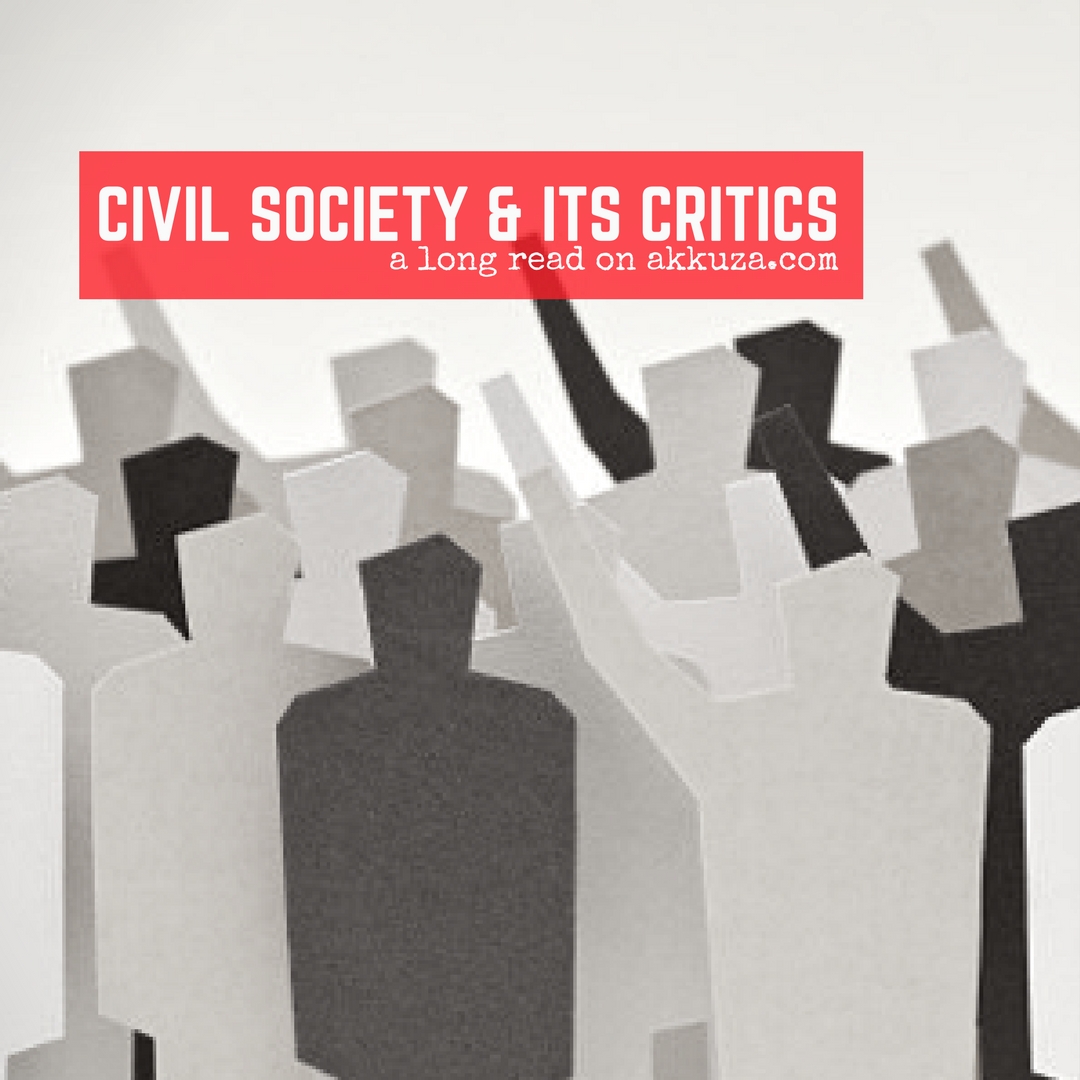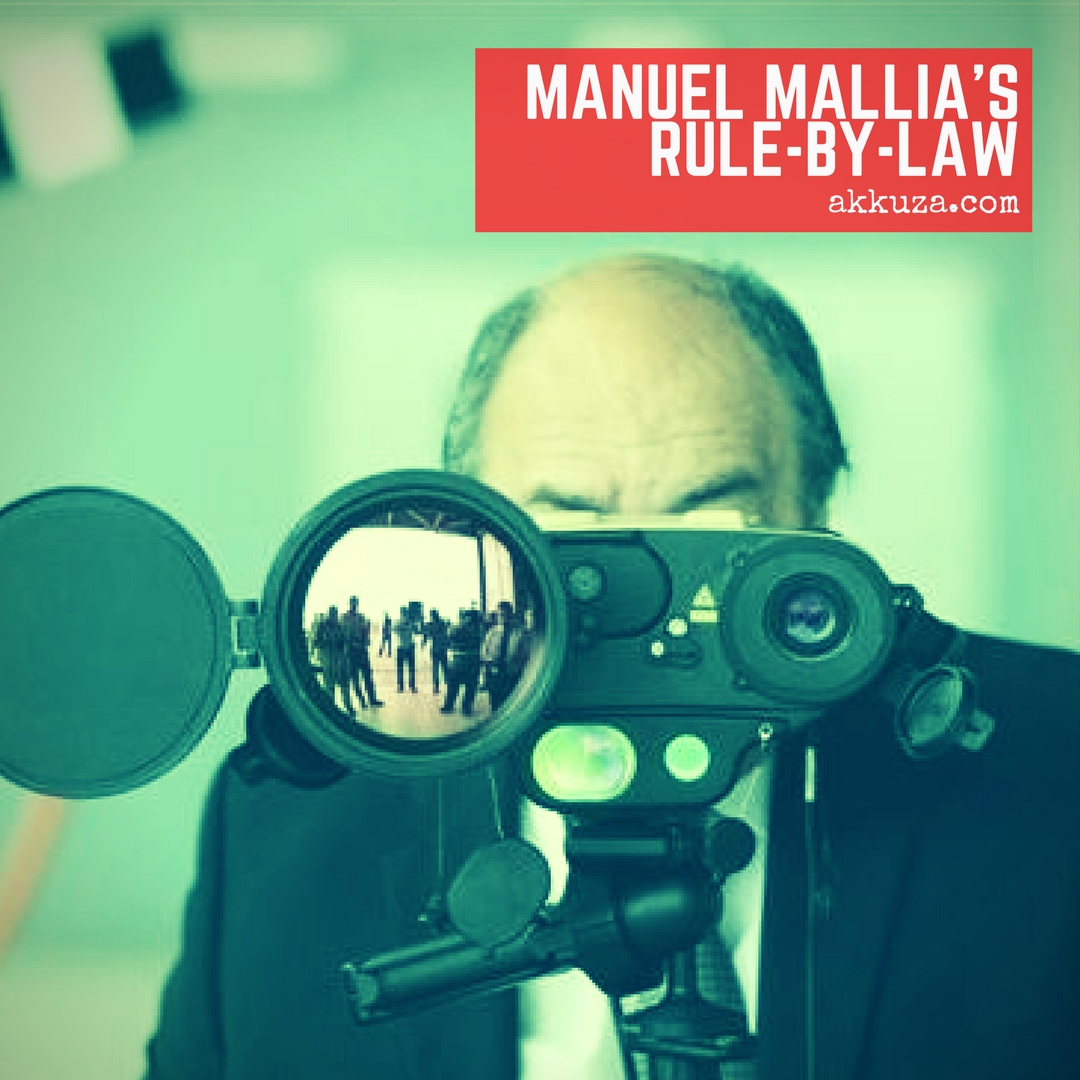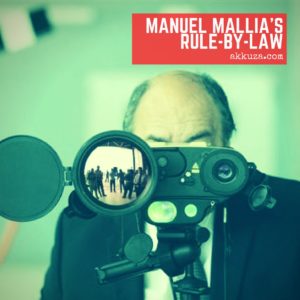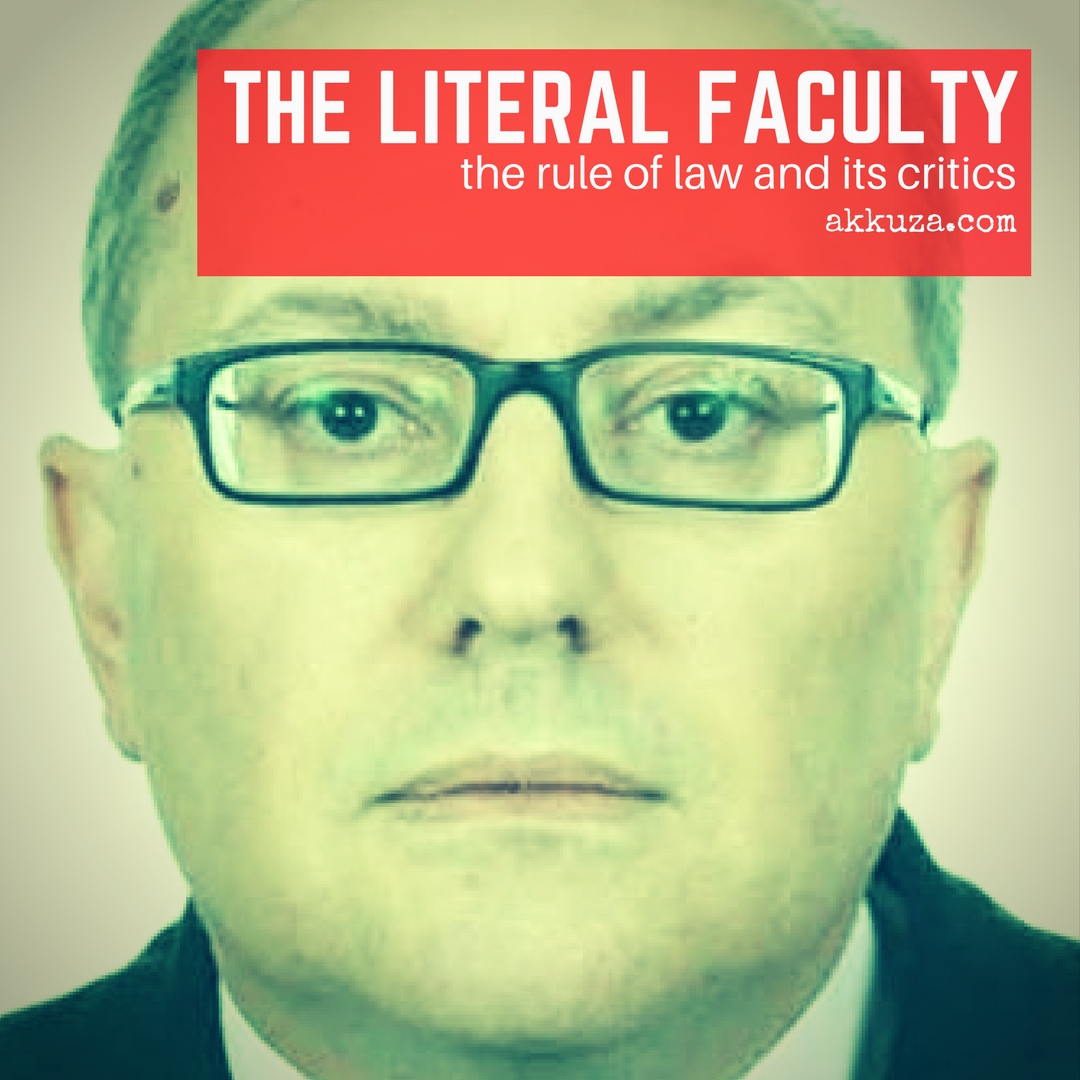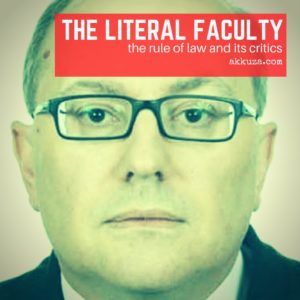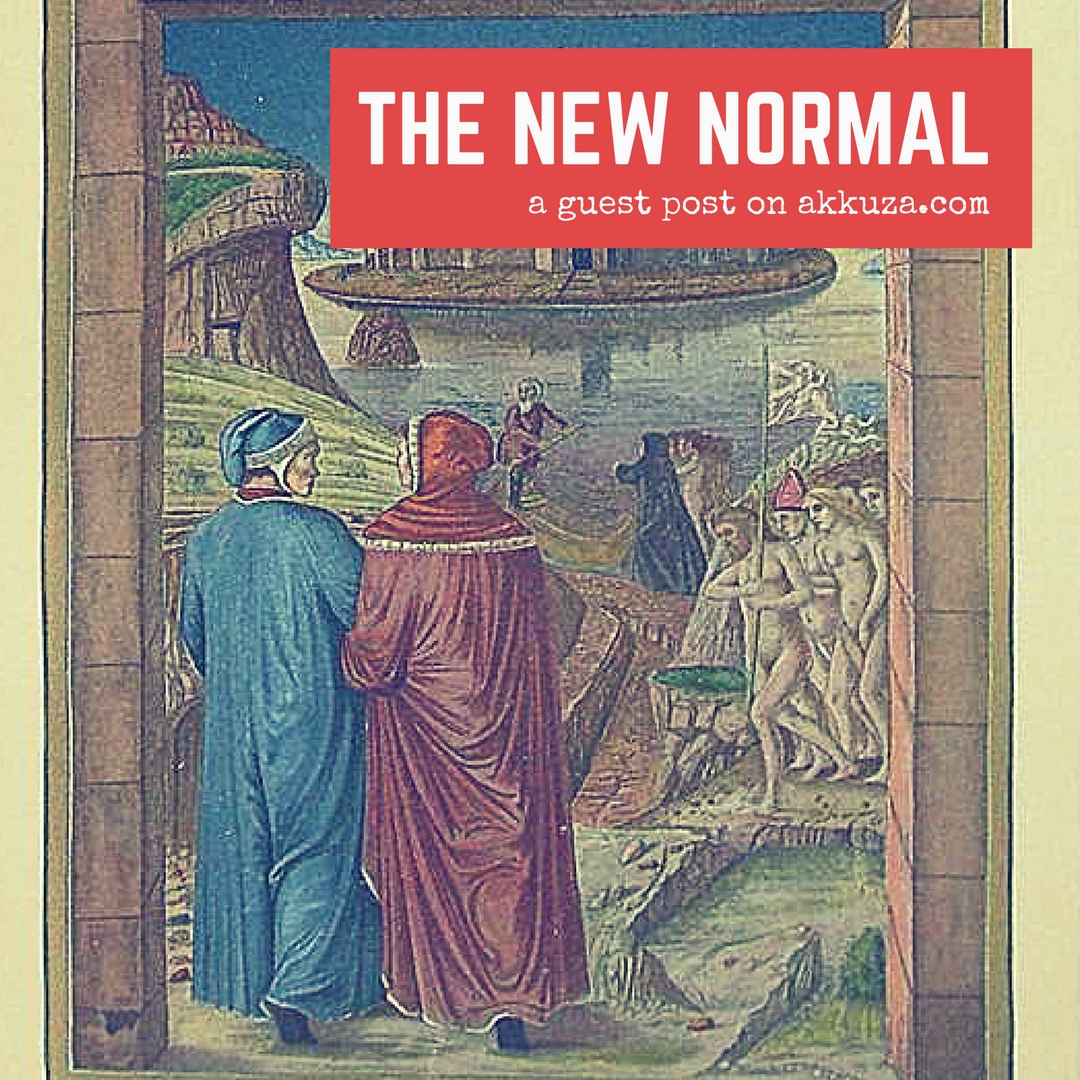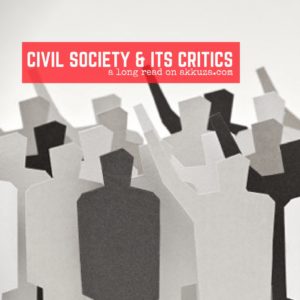
A long read. This post takes a look at the actors and interests in the current debate on the rule of law in Malta.
This afternoon the European Parliament will discuss a resolution on the Rule of Law in Malta. Point 5 of the Draft Resolution reads that “[The European Parliament] Regrets that developments in Malta in recent years have led serious concerns about the rule of law, democracy and fundamental rights including freedom of the media and independence of the police and judiciary”. Point F of the preamble in the same draft resolution notes that “whereas this assassination led to street demonstrations and civil society protests in Malta calling for justice, accountability and respect for the rule of law”.
Our second parliament (because that is what the EP is, OUR parliament not a foreign institution) is about to discuss the state of the Maltese nation with particular attention to the legal framework that holds it together. Today’s discussion is an important milestone in our nations’ constitutional development and Civil society has been instrumental to get this discussion high on the agenda at both a Maltese and European level.
In May last year the group calling itself “Advocates for the Rule of Law” took out their first full page advert on the Sunday Times. The ad read ” Situations Vacant : Police Commissioner, Chairman FIAU, Attorney General – needed for the proper functioning of a democratic society #ruleoflaw_MT, #maltaconstitution, #bringitback”.
I will be in Strasbourg for the commemoration of the Daphne Caruana Galizia Press Hall this evening and will also follow the debate. It’s a two hour drive from Luxembourg and it is only right to be there for this moment. It is because I live in Luxembourg that I rely on feedback from Malta for news “on the ground”. What are the streets saying while one of our highest institutions discusses a motion that practically describes a nation in constitutional crisis? The feedback I am getting is that the effort to “return to normal’ seems to be winning. Four weeks after the assassination that supposedly shook Malta to its foundations we risk seeing Italy’s elimination from the World Cup snatching the frivolous “news cycle” baton once and for all.
So what exactly is happening? How can we have a nation that (at least in appearance) is hell bent on returning to the “u ijja mhux xorta?” normal while at the same time an important part of its institutional set up is ringing alarm bells? To understand this we have to look at the actors in this drama. What part has Civil Society played in this development – and who, above all, are its critics and detractors?
Dramatis Personae
1. The European “Partners”
The dynamic of the European institutions is such that national and supra-national interests meet in a huge chamber where ideas are bounced around. A resolution by the European parliament is not binding in the strict sense of the term for example, however one would be a fool to dismiss it as “international diplomatic spiel” that is void of substance. In the first place the EP acts within clearly defined legal parameters and on the basis of principles that are universally accepted at a European level. That is why today’s resolution begins with the consideration that the EU is founded on the values of respect for human dignity, freedom, democracy, equality, the rule of law and respect for human rights. In other words, action by the EP is grounded in principle and in law.
The major pitfall at an EU level is that the parliament resolution may be used to further competing national interests. In this particular case we may note that members from certain EU countries might use this moment of weakness in order to attack areas such as Fiscal policy and Gaming. It’s a cheap trick – one that aims to obtain what their respective countries failed to obtain during legitimate negotiations that led to Europe-wide legislation. In layman’s terms, the members of the EP who will be using this debate to put the blame on a competitive Fiscal or Gaming Policy will be deliberately obfuscating the actual matter at hand – something that was already seen in the PANA committee debates earlier on. In doing so they will provide much needed fodder to the defending government who will obviously claim that this is an assault on the country and its well-being (more about that later).
The rest of the EP – those not intent on winning brownie points for their own country’s gain – will be acting with the interest of the Union in mind. The interest that has already seen similar concerns for countries such as Poland and Hungary will now focus on Malta. It is in the interest of the citizens of Malta first and foremost, but also in the interest of the Union as a whole for the Union is only as good and great as its weakest link.
2. The Establishment in Power
By far the biggest actor with much to lose in this debate is the current custodian of government. The massive media machine has long been set in motion with a huge effort in counter-information that is supposed to negate the crisis and convince the people that all is back to normal. It is working. Only yesterday, the head of the establishment in power promised more wealth and more rights for the future. The greatest interest of power is its preservation and the key to preservation of such power is convincing the people that all is well and that the future is bright.
Millions of euros are being spent on this kind of propaganda. Every effort by civil society to call out the emperor’s nudity is countered by an army of official and unofficial counter-information. Last Sunday one of the comment articles in the Times was entitled “They doth protest too much” – it was a suavely written piece at the service of the current status quo. It was also a clear example of the direct attack on civil society based on the age old cliche’ of “divide and rule”. Doubts are sown, motivations are questioned and before you know it you are thinking: Maybe they do protest too much.
This evening government will amass its forces in order to propagate its counter-information against the “intrusion of the foreigner” – which is an old socialist trick that finds a ready acceptance among a voting populace with an insular mentality. The bottom line for today’s official Newspeak Newsletter will be: This is a traitor’s conspiracy to rally the foreigner against Malta. It will probably work.
3. The Government’s Courtesans
In the times of Le Roi Soleil being part of the King’s court meant everything. Unless you were in favour with the king your titles and nobility did not mean much. Over the years this government has built its own team of courtesans – lobby groups, interest groups, appointees, employees and other dependents – who owe the same government a regular show of fealty. Whenever trumpets need to be blown they are there: at the beck and call to do the governments’ bidding. The assault on the calls for change was boosted by the rallying of the courtesans.
Constitutional reform was brushed away as a ridiculous idea, calls for immediate change such as the resignation of a police commissioner and attorney general were once again given the “motive” treatment. Divide and rule. Assign dubious motivation. Then go for the jugular: civil society is asking for mob rule. The two-thirds majority is an absurd suggestion. Miss the wood for the trees. Nitpick their arguments into submission.
The courtesans are an important part of Muscat’s Gattopardian puzzle of maintaining the status quo. They are intent on getting a share of the illusion of wealth that is being created. As plans of neutering our center of thought unfold with a new law giving control of University to government, as our students celebrate the victory of partisanship over thinking, as our Chief Justice becomes a lone voice in an institutional desert, Muscat’s grip over the courtesans means that he can strangle a good part of civil society into submission. Without that part the dissenting voices of civil society become squeaks and squeals that cannot be heard above the Newspeak noise.
4. The Converted
Civil society in Malta had long lost a huge part of its number. The discerning, questioning, part of civil society – the one that legitimately and constantly demands and asks questions of its representatives and of the custodians of its sovereign institutions – has always been a very tiny minority. The rest of what used to be civil society have been groomed into partisan submission. The general narrative – that the nation is passing through one of its most prosperous and wealthy times ever – suits the large part of the converted perfectly. It includes of course those who have voted for and will continue to vote this government based on the promises of prosperity at all odds. It now includes a large part of those who could not bring themselves to vote this government but were also fascinated by the easily obtained prosperity – and could not bring themselves to question whether this was based on healthy foundations.
The converted have no colour. For a long time we wrongly assumed them to be two huge chunks of red or blue. There was a unifying factor of ego-litics – the politics of the self – that they held in common. The common good, the common wealth is not theirs to worry about. Their party, and through their party their aspirations for the self, is what counts most.
5. The Foot-soldiers of Old
The current constitutional crisis saw civil society (or what is left of it) attempt to reform and rally around the call for change. A weak link in this rallying call was the presence of foot-soldiers of old. These are failed politicians of the past: those who seeing the opportunity to revive a dying political career would jump on the bandwagon in one last Hail Mary attempt. There is nothing wrong in a second start mind you, however the dedication to the cause must be clear and the determination to stand by it at all costs must also be clear. If at every opportunity, the cause is hijacked in an attempt to whitewash faults of the past then the damage to civil society is clear.
Malta’s tribalistic politics is the kind of environment where a civil society that can easily be associated with the aims of one or another of our partisan elements is in danger – particularly in these times of heavy counter-information. This is not an appeal for purity, this is not a call for those who are without sin. This is a call for clear commitment.
6. The Cynics and the disparate movements
The biggest weapon available for rendering the civil society cause redundant is the descent into paranoid accusations between exponents and those who have genuine concerns regarding the finality of the cause. The critics and the cynics have their genuine concerns. The defence put up against such concerns does sometimes border on paranoia. What happens generally though is that the whole point of the need for a clear rallying point is missed.
The biggest fault to date of the current movement for change is its disparate nature. Civil Society Network remains an abstract label without a clear definition. Other efforts are working in their little corner built upon spontaneous action triggered by anger and helplessness. That much has been achieved until now is practically a miracle.
The real civil society – what is left once all the establishment, all the converted and all the courtesans and foot-soldiers are removed – still needs to rally clearly behind a definite long-term cause.The groundwork is already there: the rule of law and the return to a democratic society. What is required is a concerted effort bringing together all the elements of the real civil society who are prepared to take the struggle to the long haul.
Civil society has too many obstacles before it and cannot afford to be bogged down by incompetence and division.
The people united can never be defeated.
